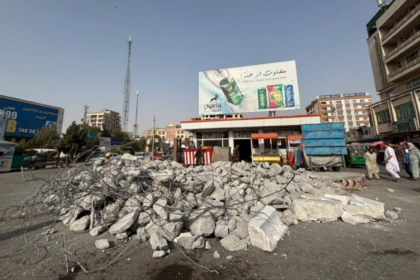RASC News Agency: Afghanistani citizens are increasingly disillusioned with life under Taliban rule and are eager to leave the country at the earliest opportunity. Many are striving to seek asylum in Western countries to secure a safe and peaceful life, away from mysterious killings, insecurity, and poverty.
The United Nations recently reported that since 2020, 8 million Afghanistanis have fled the country. Simultaneously, numerous citizens state that the dire and oppressive conditions under the Taliban regime have made even those with relatively better lives consider leaving. They cite the deprivation of women and girls of their basic rights, acts of revenge, ongoing executions, oppression, summary trials, the prohibition of political parties, the absence of civil liberties, and the proliferation of poverty and unemployment as the main factors driving mass exodus and their growing disdain for Taliban governance. According to these citizens, the Taliban demand a life of servitude, denying them the right to protest, criticize, or participate in any aspect of collective life, while the group exerts control over all affairs, including personal matters. The pervasive police state, clerical rule, ethnic and political monopolization, arbitrary arrests, and forced displacements have cast a shadow over their future in the country, prompting thoughts of escape.
Afghanistani citizens lament that life has become increasingly difficult, with the Taliban imposing more restrictions daily. Consequently, they are determined to leave Afghanistan. They note that the youth are particularly desperate to flee to a safer country. Meanwhile, the United Nations reports that nearly 8 million Afghanistani citizens have left their homeland since 2020. According to the organization, 85% of them have migrated to neighboring countries, primarily Iran, and almost one million have moved to Europe.
The latest data from the International Organization for Migration reveals that almost 70% of Afghanistani citizens have moved to Iran due to the lack of job opportunities in their country. Additionally, the report states that nearly one million migrants returned to Afghanistan from Iran in 2023, with 70% lacking legal documentation and 60% being forcibly repatriated. A UN report indicates that many Afghanistani citizens resort to unofficial channels for migration due to difficulties in obtaining passports and visas, often paying smugglers to cross informal borders. The organization notes that most migrants must borrow money or sell family possessions to cover their travel expenses.
Afghanistani citizens complain of unemployment and poverty, blaming the Taliban for the deteriorating economic conditions. They argue that instead of improving business opportunities, the Taliban’s takeover has led to increased unemployment, imposed more restrictions, and curtailed their freedoms. Simultaneously, many undocumented Afghanistani migrants are being expelled from Iran and Pakistan.






